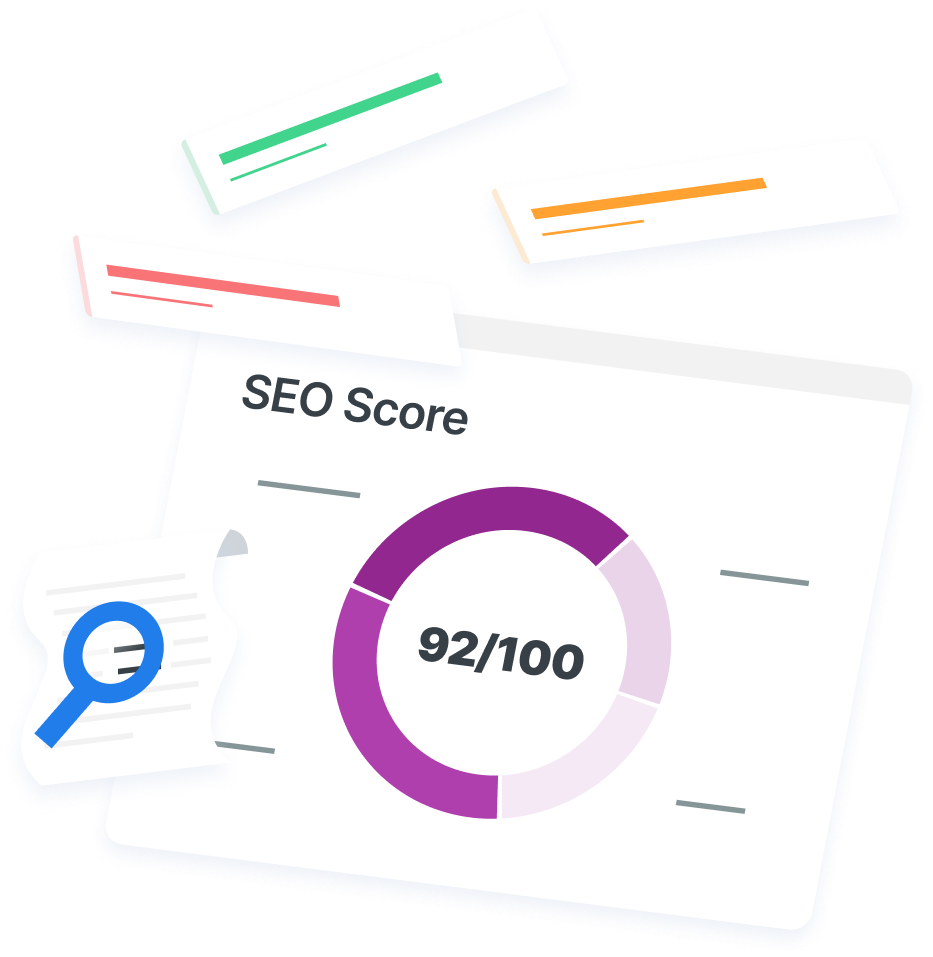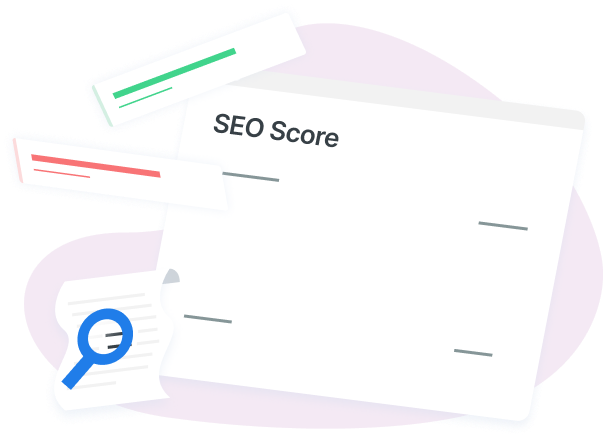-
 Published: Aug 21, 2023
Published: Aug 21, 2023
-
 7 min. read
7 min. read
-
 Matthew Gibbons
Matthew Gibbons Lead Data & Tech Writer
Lead Data & Tech Writer
- Matthew is a marketing expert focusing on the SEO & martech spaces. He has written over 500 marketing guides and video scripts for the WebFX YouTube channel. When he’s not striving to put out some fresh blog posts and articles, he’s usually fueling his Tolkien obsession or working on miscellaneous creative projects.
In this video, you’ll learn more about the Google E-E-A-T guidelines. Keep reading to find out more!
Transcript
Imagine you’re searching online for some info about the planet Saturn, and you run across a couple of different articles. The first one is written by an astronomer, and it’s very well-researched. The second one, though, is by someone with no scientific background, and it’s filled with typos — maybe some factual errors, too.
Between the two articles, which one are you more likely to read? Probably the first one, right? Well, Google thinks the same way. It’s developed a guideline known as E-E-A-T, and optimizing your content for that guideline can help it rank higher.
But what is E-E-A-T? Well, that’s just the question we’re here to answer.
We foster and form long-term partnerships so that your business has long-term results.
Over 90% of WebFX clients continue partnering with us into year 2 of their campaign.
Hear from Our Happy Customers

What is Google E-E-A-T?
E-E-A-T stands for Experience, Expertise, Authoritativeness, and Trust. It’s basically a guideline that says if you want online users to trust your brand and your content, you need to have those other three words — experience, expertise, and authoritativeness.
To be clear, E-E-A-T isn’t a ranking factor. Google uses it as a way to show companies how to improve their content, but Google itself doesn’t rank that content based on E-E-A-T. That said, optimizing for E-E-A-T is a surefire way to improve your content and get it ranking higher.
What factors contribute to Google E-E-A-T?
We’ve just named the four factors that help build trust in your brand, but now let’s break each of them down a little more.
Experience
First up is experience. You want your site to reflect the experience you’ve had with your chosen topic. So, if you offer HVAC services, your site should indicate how long you’ve been in the HVAC business and what sorts of results you’ve driven. That’s a great way to make users trust you and your content.
By the way, side note: AI-written content is becoming a bigger thing now, but AI literally can’t have experience with any industry. The idea of experience is a purely human concept. So, if you want to follow those E-E-A-T guidelines, be sure to involve humans in your writing process.
Expertise
Expertise is related to experience, but they’re not the same thing. Expertise is more about how much knowledge you have on a particular topic. How much do you know about the topic? How accurate is the information you give?
It’s probably obvious, but people will usually prefer content that shows more expertise. So, you want to make sure you demonstrate expertise in your own content. Like, if you run a pest control business, make sure you include content on your site that shows off your knowledge, even if it’s just lists of pest prevention tips.
Authoritativeness
Thirdly, your site should be seen as authoritative. Basically, you want users — and Google — to view you as a trusted and reputable source on your chosen topic or industry. It can take time to build up authoritativeness, but if you maintain experience and expertise over time, authoritativeness will eventually follow.
One way you can build up your website’s authority is by earning links to your content from other reputable sites, so you may want to create a link building strategy. We have more info on that on our website and our channel.
Bear in mind that just because you’re authoritative in one area doesn’t mean you’re reputable in others. For example, the IRS is one of the best resources for learning about taxes, but if they were to start putting out articles about microbiology, I don’t think anyone would take them that seriously.
Trust
The final letter in the acronym stands for trust. Trust is really what the whole guideline is about. The point of pursuing experience, expertise, and authoritativeness is to get people to have more trust in your business. Why? Because if people don’t trust you, they won’t want to buy from you.
By working to increase trust from your audience, you’ll also end up increasing sales and revenue.
How can you optimize for Google E-E-A-T?
Now that we’ve gone over what E-E-A-T is, let’s talk about how you can optimize your site and your content for it.
1. Prioritize all things human
Have you ever read something super dull and formulaic and thought to yourself, “Boy, I just love reading content that sounds like it’s been written by robots”? No? Well, neither has almost anyone else.
People like visiting sites and reading content that feels human. They don’t want to interact with a mindless machine, they want to interact with other people. For that reason, you really wanna make sure your site has a human element.
One way to do that is to actually show off your team. Have a section of your site that introduces your team members. Include short author bios in all your blog posts. Make videos that feature the awesome people that work for you. You know, like the one you’re watching right now.
You can also just try to write your content in a way that sounds human and approachable. If you’re not sure how to do that, tip #1 is to have actual humans write and edit that content. Don’t be the company that just copies-and-pastes articles straight from ChatGPT.
2. Highlight your experience and expertise
Something else you wanna do is really highlight your experience and expertise.
Considering what we’ve already talked about in this video, I know this tip is obvious. Still, it’s worth mentioning. You want people to think you have experience and expertise, right? Well, one of the best ways to make that happen is to just tell them that you have it.
That doesn’t mean you should make things up. Be honest. But if you’ve been in your industry for 10 years, or if you’ve got 100 different testimonials talking about your expertise, say so! Mention those things across your site. That’ll make it way easier for people to see the value of your brand.
3. Keep your site updated
One thing you really don’t want is outdated content. Imagine watching a video about “current tech company trends” and then realizing the video mentions how search engines are just starting to gain popularity. It was made before Google was a noun and a verb. Not exactly current anymore.
There are two ways to keep your site fresh and up to date. The first way is to try and write evergreen content. That’s content that’s optimized to stay relevant for a long time, and may only require small tweaks to keep it extra fresh in the future. You can make time-sensitive content, but try to balance that out with stuff that won’t get old quickly.
Of course, everything gets outdated eventually, especially something like that “current tech company trends” example I used a minute ago. So, when that happens, the other thing you can do is just update stuff. Keep an eye out for ancient (or even slightly old) content on your site. When you spot some, just go in and update it to be more current.
When people feel like your business is on the cutting edge of the industry, they’ll also see you as more knowledgeable and authoritative.
4. Make sure your site is genuinely helpful
Finally, please take the time to make sure your website is actually helpful to the people who visit it. If you make a piece of content, it should provide genuinely useful info to people. If it doesn’t, they’re not gonna stick around to read it.
This is extra important ever since Google pushed out its helpful content update, which prioritizes content in search results that seems to really be useful to those who view it. If you want to rank high and draw in traffic, you need to provide content that users can benefit from.
Don’t miss our Marketing Manager Insider emails!
Join 200,000 smart marketers and get the month’s hottest marketing news and insights delivered straight to your inbox!
Enter your email below:
Inline Subscription Form – CTA 72
“*” indicates required fields
(Don’t worry, we’ll never share your information!)

Learn more about how to boost Google rankings with WebFX
Interested in learning more about optimizing your content and brand? Just subscribe to our YouTube channel, or to our email newsletter, Revenue Weekly. We’ve got plenty more helpful videos and blog posts to help you learn about digital marketing.
Well, that’s all for now. Thanks for watching, and we’ll see you next time!
-
 Matthew is a marketing expert focusing on the SEO & martech spaces. He has written over 500 marketing guides and video scripts for the WebFX YouTube channel. When he’s not striving to put out some fresh blog posts and articles, he’s usually fueling his Tolkien obsession or working on miscellaneous creative projects.
Matthew is a marketing expert focusing on the SEO & martech spaces. He has written over 500 marketing guides and video scripts for the WebFX YouTube channel. When he’s not striving to put out some fresh blog posts and articles, he’s usually fueling his Tolkien obsession or working on miscellaneous creative projects. -

WebFX is a full-service marketing agency with 1,100+ client reviews and a 4.9-star rating on Clutch! Find out how our expert team and revenue-accelerating tech can drive results for you! Learn more
Try our free SEO Checker
Boost your site’s search performance with our free SEO Checker. Analyze your website for optimization tips on titles, headers, content, speed, and more. Get a free report now to enhance rankings on Google, Bing, Yahoo, and beyond!



How Is Your Website’s SEO?
Use our free tool to get your score calculated in under 60 seconds.
Try our free SEO Checker
Boost your site’s search performance with our free SEO Checker. Analyze your website for optimization tips on titles, headers, content, speed, and more. Get a free report now to enhance rankings on Google, Bing, Yahoo, and beyond!






